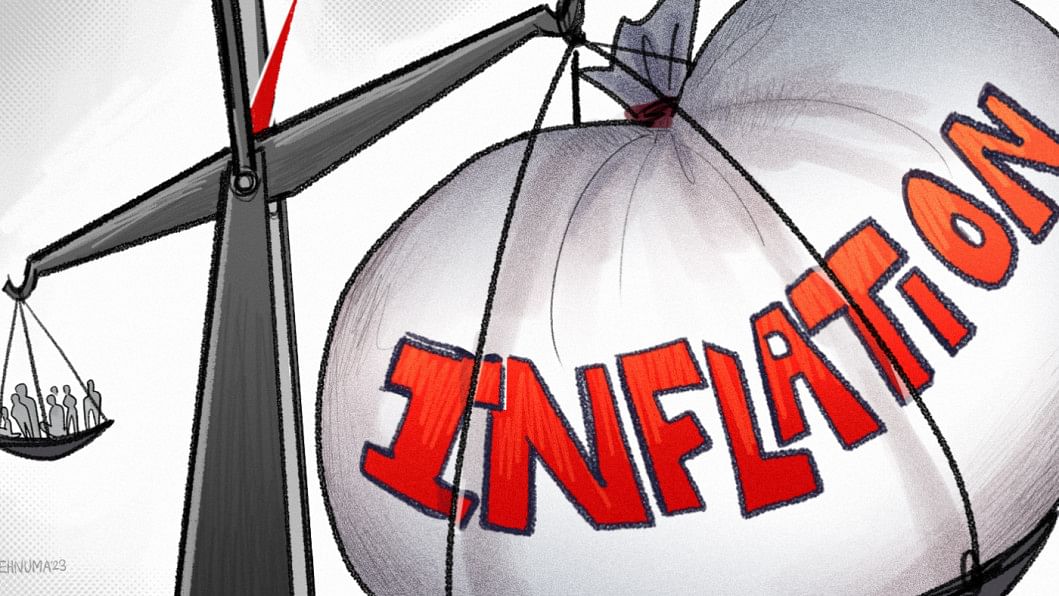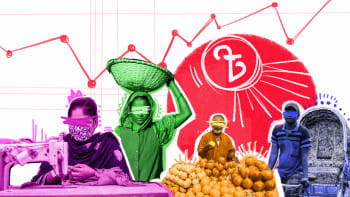What the upcoming budget must deliver

There is no denying the fact that the national budget for the 2023-24 fiscal year is facing at least three core economic challenges: recovering the economy fully in the aftermath of Covid, maintaining macro-stability, and containing the inflationary pressure. There are certain long-standing issues that need to be addressed as well – namely sluggish private investment, dismal performance of revenue mobilisation, inefficiency in the implementation of development projects, lack of effective governance in the financial sector, etc. Resource allocation of the budget must also address the fundamental issues of reducing poverty, stemming the rising inequality, sustaining growth, and generating employment. Though the recent budget structure is determined on the basis of medium-term budgetary framework (MTBF), a certain degree of adjustment based on short-term challenges is feasible as well. In addition, given the conditionalities associated with the recent IMF loan of $4.7 billion, a number of reforms need to be initiated and effectively implemented, which is quite a challenging task in this election year.
Revisiting the key budgetary targets of the current fiscal year, it can be inferred that they have not been fully achieved. Both in the context of revenue earnings and the development expenditure, data till April 2023 shows that the actual figures are far below even the revised targets of the budget. For example, the initial target of GDP growth was set as high as 7.5 percent, though later revised down to 6.55 percent, but the provisional actual figure is just above six percent. Inflation was projected to be 5.6 percent, later revised upward to seven percent, but the actual data as of April reveals it reached as high as 8.6 percent on average. The performance in terms of implementing the current budget is, therefore, not satisfactory.
The most challenging task of the upcoming budget is addressing revenue earnings. While designing the tax structure, it should be kept in mind that it can be an effective tool in reducing income inequality. According to the Household Income and Expenditure Survey (HIES) 2022, inequality has increased in recent years, and that has been reflected in both income and consumption Gini (measure of inequality). For example, the income Gini coefficient has increased to 0.499 in 2022 from 0.482 in 2016, and the consumption Gini coefficient has risen from 0.324 in 2016 to 0.334 in 2022.
Given the high rate of inflation, the government can consider increasing the per capita allocation of safety net coverage. In order to contain the soaring inflation, it is also essential to minimise the involvement of middlemen and thereby make the supply chain efficient, and also to emphasise strict market monitoring mechanisms.
Here, we must remember that due to underrepresentation of those at the upper income decile as well as misreporting of income data, survey data like that of the HIES tend to underestimate the true picture of inequality. In order to reduce and reverse this trend, a progressive and transparent tax structure focusing primarily on direct taxation can be effective. In this context, a massive reform is needed, gradually shifting the focus towards direct taxation, while emphasising expanding the tax net and redesigning the income tax structure in a progressive manner.
In this regard, digitalisation at every level of monetary transactions and making the revenue collection mechanism fully automated can have a significant impact. Adoption of innovative strategies implemented in other countries can be considered, too. In addition, decentralisation of the tax system and tax offices, arranging tax fairs at different localities with certain incentives, severe penalty in case of corruption or harassment of clients, making submission of tax return certificates in as many cases as possible, redesigning wealth tax, making the surcharges more progressive, redesigning the income tax brackets, etc can have important impacts. Besides, in order to boost trade-related taxation as well as put a constraint on the outflow of foreign currency, luxury commodities need to be taxed at higher rates.
The most important concern at the moment is to contain the inflation. The government should make necessary downward adjustments of value-added tax, regulatory duties, etc to give some relief to the general people from the rising prices. Import taxes on essential commodities need to be adjusted. As part of the government's safety net programme, the open market sale (OMS) activity should be expanded significantly. The number of items on the list should be increased, and they should be provided at even lower prices. At the same time, allocations for safety net, pension and interest payment should be increased substantially. In this context, a quick implementation of the National Social Security Strategy (NSSS) is extremely crucial, focusing on the urban poor living in slum areas. Given the high rate of inflation, the government can consider increasing the per capita allocation of safety net coverage. In order to contain the soaring inflation, it is also essential to minimise the involvement of middlemen and thereby make the supply chain efficient, and also to emphasise strict market monitoring mechanisms.
Another critical issue for the FY2023-24 budget will be allocation for subsidies. Given the IMF conditionalities of reforms and the necessary austerity measures, a specific plan of action in terms of subsidy/subsidy phaseout should be revealed in this budget. In certain areas, e.g. agriculture (fertilisers, pesticides), subsidies should be continued, at least for the short run. In the case of energy subsidy, prices in the domestic market need to be aligned in a systematic manner, with price changes occurring at specific intervals. In this connection, a strict reform of the Bangladesh Petroleum Corporation is crucial to reduce losses and inefficiencies.
There is no denying that the implementation performance of our development programmes is a key concern. Till April 2023, only 50.33 percent of our Annual Development Programme (ADP) allocation has been spent, which is even lower than that in the previous fiscal year (54.57 percent). Given our limited fiscal space, we cannot afford any wastage or inefficiency; therefore projects should be selected carefully, considering their implications on the development efforts of the country. In this connection, a regular (preferably quarterly) ministry-wise project-based micro-level monitoring and evaluation practice should be adopted and strictly followed.
Another crucial area that needs greater attention in budget allocation is the areas of social sectors, e.g. education and healthcare, along with social safety nets. An increased allocation that is consistent with the practice in other South and East Asian economies while focusing on better implementation is crucial in this context.
Given the challenges that our economy is going through, the government needs to prioritise its development targets. In this context, the core concern of the upcoming budget should be containing the inflationary pressure while generating employment and maintaining macro-stability.
Dr Sayema Haque Bidisha is professor at the Department of Economics in Dhaka University, and research director at the South Asian Network on Economic Modeling (Sanem).


 For all latest news, follow The Daily Star's Google News channel.
For all latest news, follow The Daily Star's Google News channel. 










Comments